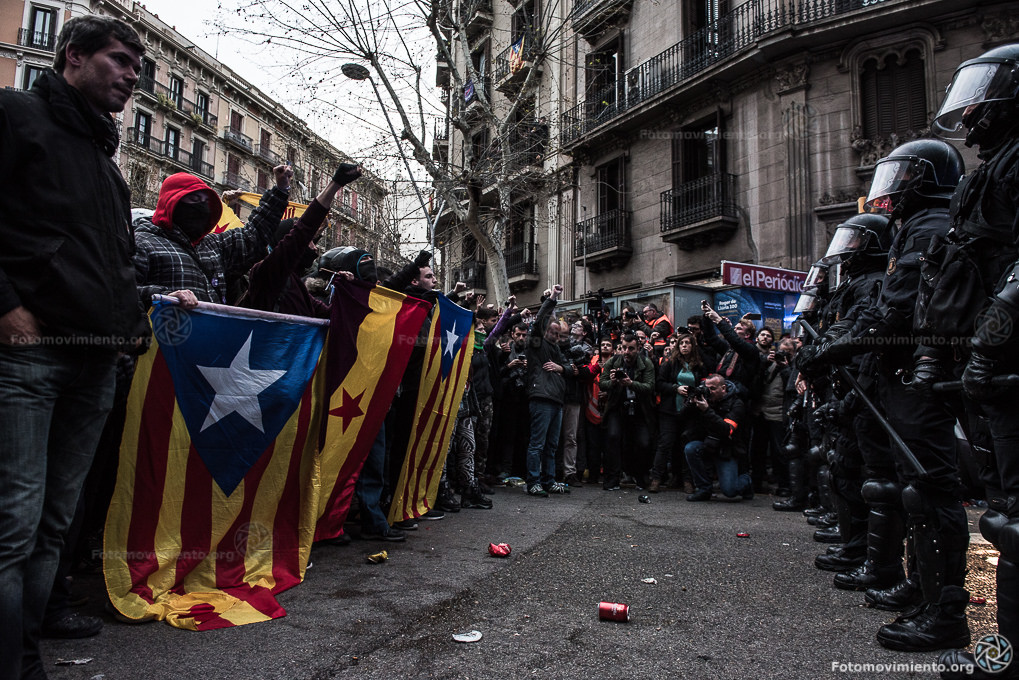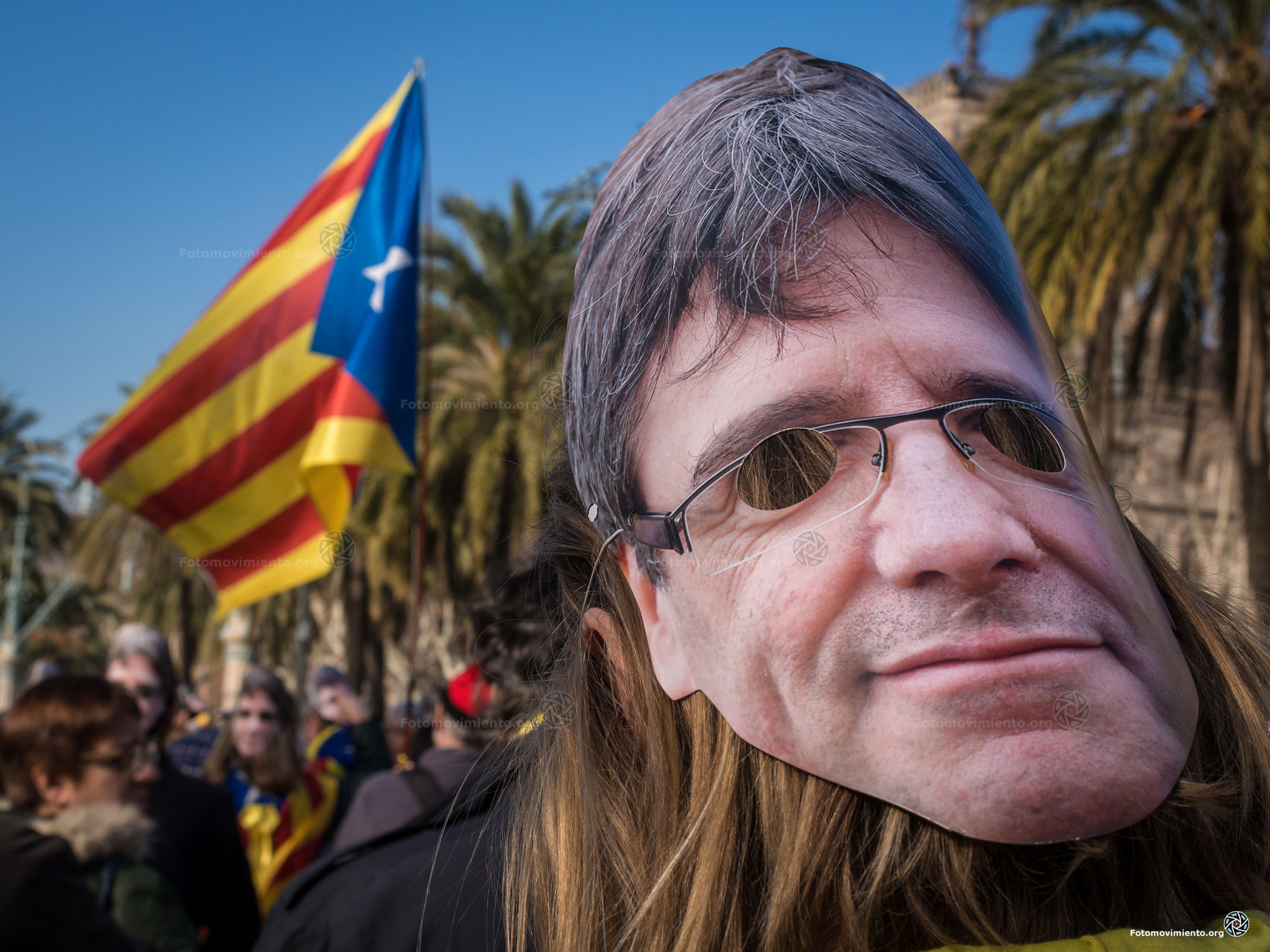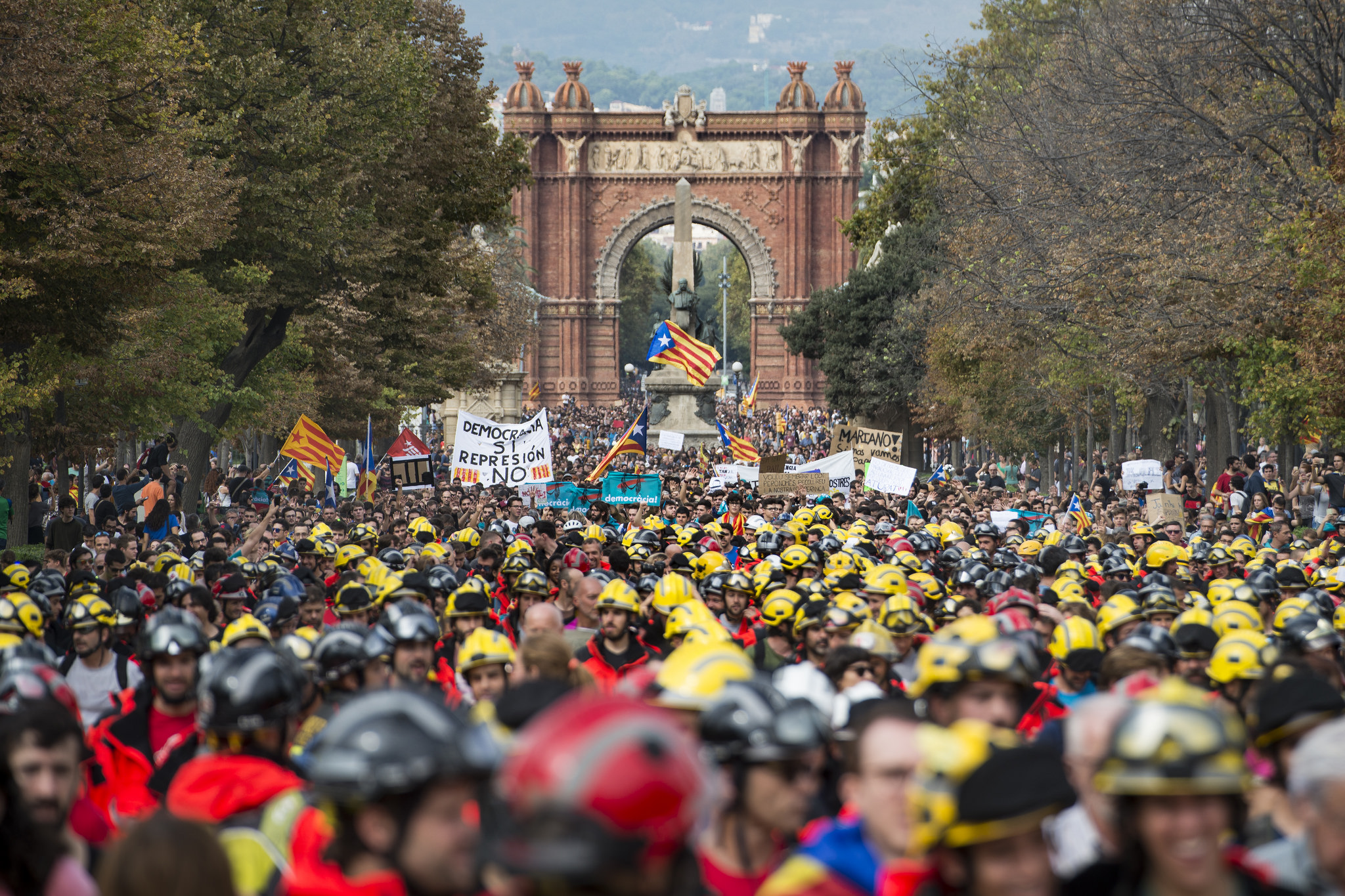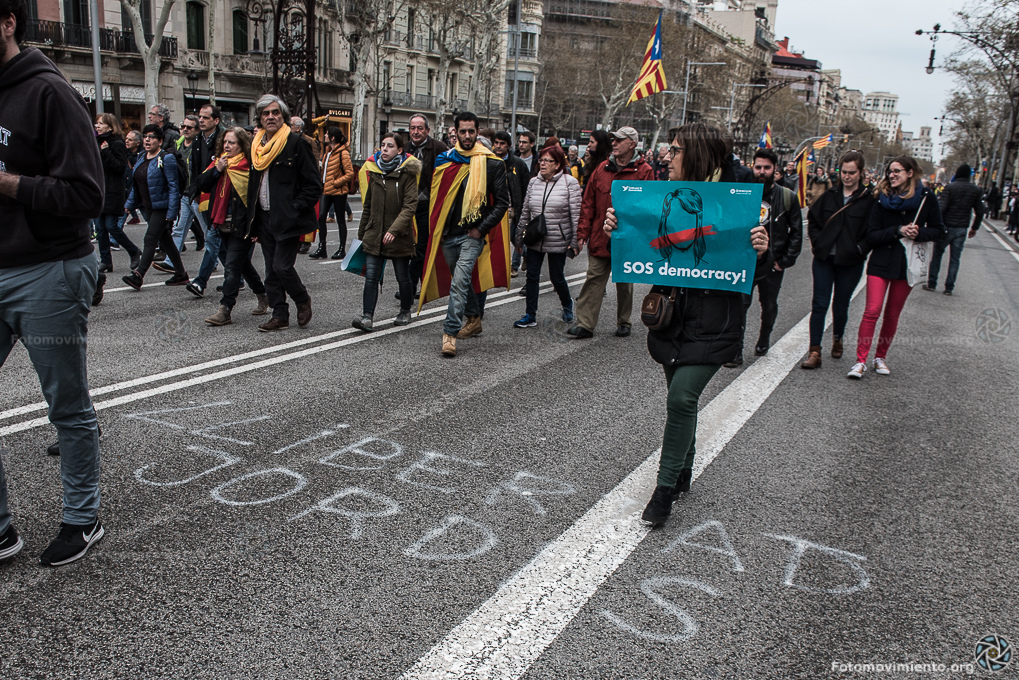The Catalan Movement After Puigdemont’s Arrest
 https://flic.kr/p/FS4Jz8
https://flic.kr/p/FS4Jz8
On 24 March 2018, former Catalan President Carlos Puigdemont was detained by German police as he crossed into Germany from Denmark. Living in self-imposed exile in Brussels since October, Puigdemont was traveling from Finland to Belgium before he was taken into custody under a European arrest warrant that was reactivated by the Spanish government. Initially, Spain issued a request to Finnish authorities to detain Puigdemont, who was visiting Finnish lawmakers and attempting to promote Catalan independence. Due to delays in translation, however, Puigdemont was able to leave the country until he was arrested by German authorities while en route to Denmark.
As a result of a new constitution in 1975, Spain’s return to democracy created a “decentralized but not formally federal state,” granting Catalonia a “significant degree of political autonomy — but not enough according to the [Catalonian] current political leadership.” The Catalan movement gained traction last October, when separatist lawmakers declared the region independent from Spain. In order to advance towards greater separation, 90% of Catalans voted for independence in a referendum considered illegal by the Spanish government. Many voters were met with violence from opponents of secession and from the national police.
Currently, Puigdemont faces charges of sedition, rebellion and misuse of public funds in Spain as a result of his involvement in spearheading Catalan’s failed independence referendum. After Spanish Prime Minister Mariano Rajoy dissolved Puigdemont’s regional administration and imposed direct rule five months ago, Puigdemont’s faces charges that could lead to 30 years in prison. In doing so, Spain’s latest move presents more serious challenges to the Catalan independence movement, as its much of the leadership layer finds itself either behind bars ahead of trial or in self-imposed exile. Moreover, tipping Puigdemont off to Germany has effectively dragged one of Europe’s giant powers into the fray.

Acting in accordance with the European Union arrest warrant, Germany has 60 days to decide whether to extradite him back to Spain. The warrant requires, however, that the Spanish charges be on equal grounds with crimes punishable under German law. If such charges are not deemed equivalent according to the German judicial process, Puigdemont will be deported back to Spain and will stand trial under the Spanish court. While the Spanish charge of misappropriation of public funds has German equivalents, charges of “rebellion” are only vaguely similar to “high treason” in the German penal code, and it remains contested whether these crimes are legally comparable.
While the German prosecutors are in the midst of reaching a collective decision, the German government has already chosen not to interfere should Puigdemont be extradited. At the same time, a group of UN rights experts has claimed that Spain is in violation of Puigedemont’s rights. Earlier in March, Puigdemont filed a petition with the UN Human Rights Committee accusing Madrid of infringing his rights to “freedom of association and expression.” According to human rights expert and appointed UN Special Rapporteur David Kaye, charges of rebellion could lead to “lengthy jail sentences [that raise] serious risks of deterring wholly legitimate speech.”

As such, Puigedemont’s detention by German authorities has become a flashpoint for the Catalan independence leader’s supporters, with many taking to streets in Barcelona to protest his arrest along with 25 other Catalan leaders. Recently, under reactivated international arrest warrants, five separatist leaders – including the latest candidate in line for regional presidency, Jordi Turull – were ordered jailed pending their trials. Moreover, the Catalan parliament’s failure to vote in Turull as president has initiated a two-month countdown to elect a new leader before a regional election is needed.
Protests, therefore, have culminated due to Madrid’s subsequent response to the referendum and its direct rule over the region. According to Spanish news agency Efe, around 55,000 were involved in staged protests outside the offices of the European Commission and the German consulate. They demanded “freedom for the political prisoners” and chanted “this Europe is shameful!” As tensions escalated, police made nine arrests and at least 100 people were injured in clashes.

Puigedemont’s arrest marks another chapter in a saga that has left Catalans entrenched in a bitter division and has also triggered one of Spain’s worst political crises since the return of democracy in the 1970s. Most experts believe Catalonia will stay adversely marred by political turmoil until a stable government is formed from a new regional election, but it is unlikely to produce more serious unrest on the streets of Barcelona and other Catalan cities.
Despite a wave of protests across the region, Spain’s heavy-handed response has left the independence movement weaker than it has been in recent years and appears to be bringing it to a close. Across the European community, experts note that Puigedemont will not find much support among German politicians who have largely been in favour of Spanish Prime Minister Mariano Rajoy’s crackdown on Catalan separatism. The Spanish government has generally received support from other European governments, some of whom face separatist movements of their own. International lobbying campaigns carried out since 2012 by Catalan institutions attempted to garner widespread support as well as recognition of becoming a new European Union member state. After last October’s referendum, however, the Catalan declaration of independence was not acknowledged by any country.
Although Puigedemont’s arrest has naturally been unanimously criticized by Catalan separatists, it nevertheless galvanized a movement that had lost momentum following its narrow secessionist victory last December. Regardless of this revival, ambivalent political support from European neighbors demonstrate that the prospects of success for the Catalan movement are slim. As the Spanish government continues to tighten its control, the ongoing mobilization in Catalonia reinforces the specter that this conflict may not simply be resolved at the ballot box.
Edited by Catharina O’Donnell.
